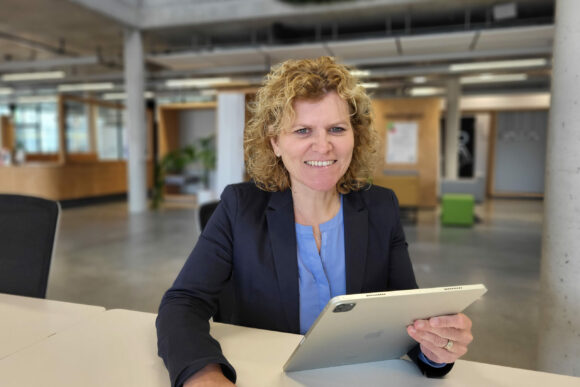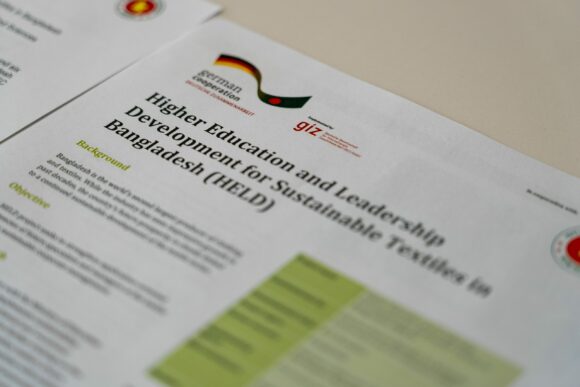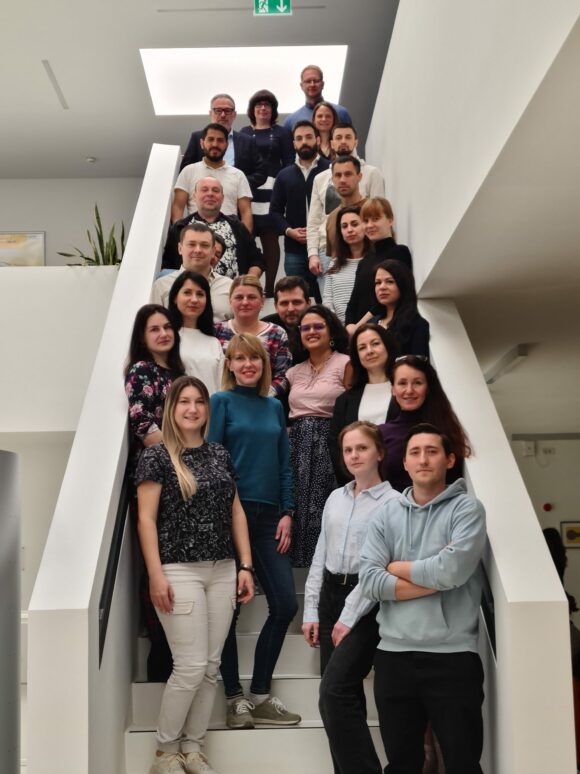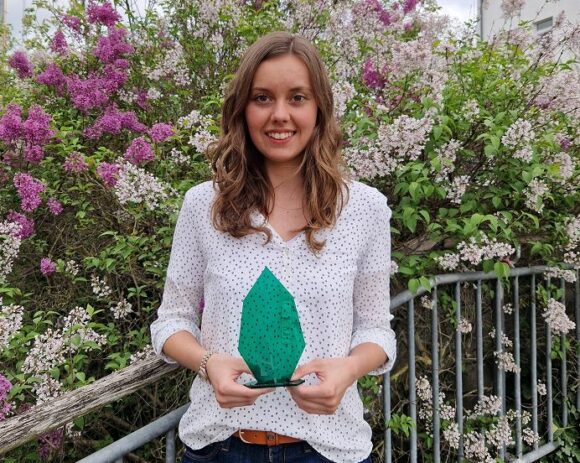Change often begins with education. For this reason, the Zoological Society of Hochfranken and the Institute for Water and Energy Management (iwe) at Hof University of Applied Sciences launched the environmental education project “Aquaponics at the Zoo – Living Sustainability”. As part of the support program “Intensification of Environmental Education in Bavaria” of the Bavarian State Ministry for the Environment and Consumer Protection, it was possible to expand the existing aquarium of the Savannah House into an aquaponics system at the Hof Zoo. This contributes directly to an improved use of resources at the zoo in Hof. In addition, it serves the school lessons.
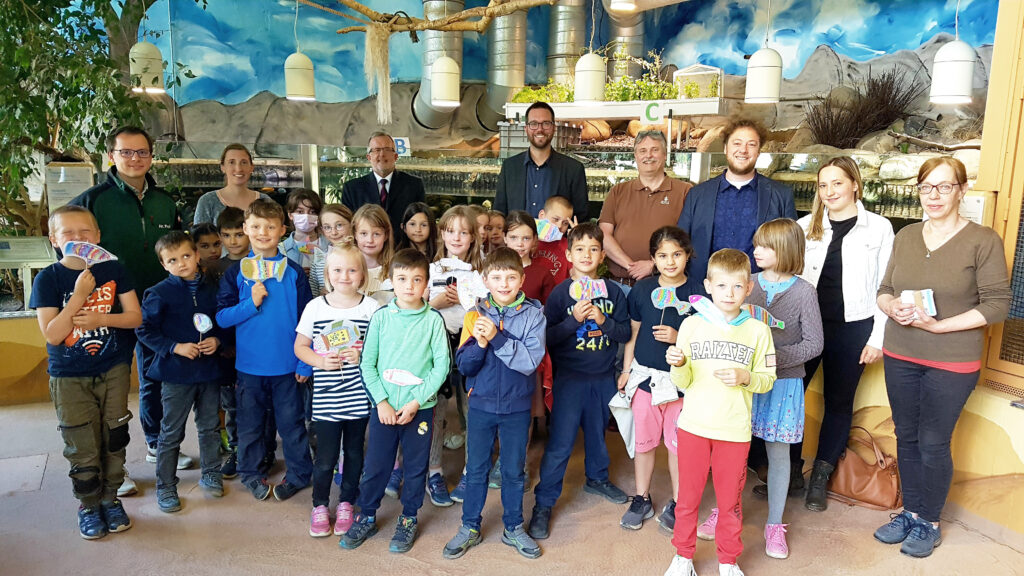
Aquaponics is a combined production of aquaculture, i.e. the breeding of fish and a plant production without the use of soil. Through this production process, residues inevitably produced by the fish are used directly by the crops for growth and removed from the water cycle. The water purified in this way can be used for longer and does not have to be replaced by fresh water. As a result, aquaponics saves water, energy and fertilizer

For the Hof Zoo, this means lower costs for water, energy and that fresh feed is additionally available throughout the year to feed the other zoo animals. The on-site production also eliminatesCO2 emissions that would have been caused by transporting the feed. Unique as such a system in a zoological garden and ideally suited to inform visitors about the advantages of such a system.
Zoo and university combine competences
The know-how and the project idea for this came from Dr. Harvey Harbach, responsible for the aquaponics research area at the Institute for Water and Energy Management at Hof University of Applied Sciences (iwe), who is pleased about the implementation: “By combining the expertise of the zoo and the university, the project unites the educational mission of two institutions in an ideal way.” University president Prof. Dr. Dr. h.c. Jürgen Lehmann particularly emphasizes the idea of resource efficiency: “Sustainability and the careful use of natural resources is a significant part of Hof University’s mission statement. In this project, this claim is ideally transferred into the practice of a well-known institution like the Hof Zoo.”
Guided tours and children’s book
At the official opening event at Hof Zoo, university president Prof. Dr. Dr. h.c. Jürgen Lehmann and zoo director David Pruß welcomed the invited guests. Hof’s 3rd mayor Sebastian Auer conveyed the greetings and thanks of the city of Hof. Afterwards, schoolchildren from Krötenbruck Elementary School were given an introduction to the functioning of the new facility by Dr. Harvey Harbach
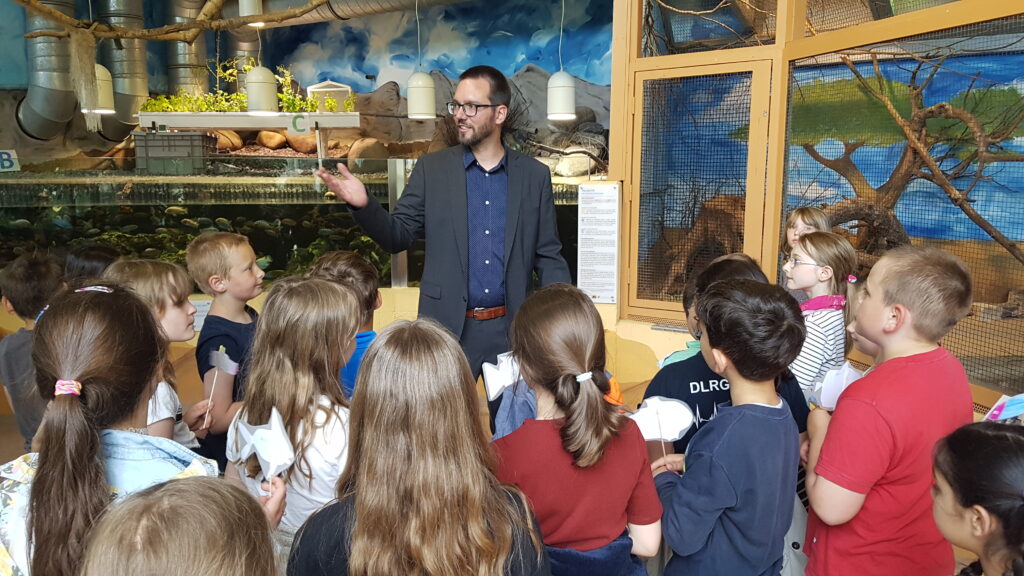
In the future, aquaponics tours by zoo educator Ulrike Kolb are to be offered at the Hof Zoo, aimed specifically at children. Pocket-sized children’s books produced as part of the environmental education project will also be handed out for this purpose. Dr. Harvey Harbach and Anne Frehse, a trained alternative practitioner, came up with the idea for the books: “With the pocket book “Lili, the little fish” we want to give even the little ones an insight into the subject of sustainability in order to sensitize them to this important topic at an early age,” says Anne Frehse.
Read aloud function via smartphone
Children who cannot yet read the information boards at the plant can either have their parents explain the plant principle to them, or the parents can call up a child-friendly explanation via smartphone using a QR code and have it read aloud. In the future, this will also be possible in several languages, including Syrian.





